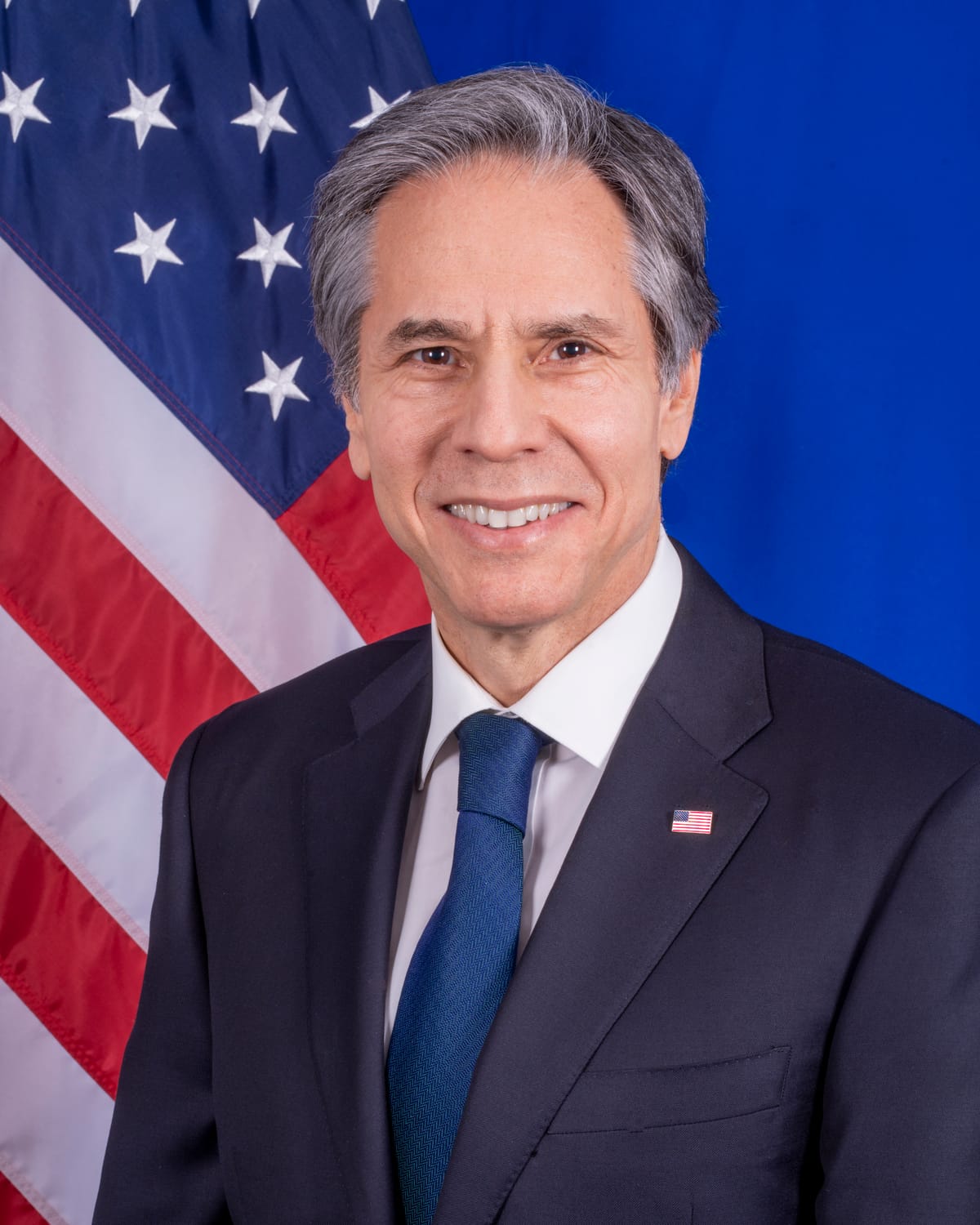Blinken Boasts Investments on Angola Visit, Snubbing China in Africa

The Lede: Last Thursday, U.S. Secretary of State Antony Blinken concluded a four-nation tour in Africa with a visit to Angola, where he emphasized Washington’s commitment to investment and funding in the country as part of its efforts to push back against China’s influence there and on the vast continent in general.
What We Know:
- In his meetings with Angolan Foreign Minister Tete Antonio in Luanda, Blinken highlighted U.S. plans to implement investments in Angola. These include more than $900 million for solar energy projects and assistance in upgrading the $250 million Lobito rail corridor, which carries critical minerals including cobalt and copper from the country’s interior and beyond in the southern part of the Democratic Republic of Congo (DRC) and Zambia to Angola’s Atlantic port of Lobito. Both sides also expressed future intentions to extend the line to the opposite coast at the Indian Ocean.
- Blinken began his tour last Monday and besides Angola, the trip included stops in Cape Verde, Ivory Coast, and Nigeria. His tour came on the heels of Chinese Foreign Minister Wang Yi’s annual New Year visit to Africa.
The Background: Blinken's visit to Angola follows a visit by Angolan President João Lourenço to the White House two months prior. During that visit in November 2023, the U.S. and Angola signed the Artemis Accords, a set of principles to guide space exploration cooperation among nations. China has been cooperating with virtually every African country in the last decade through the Belt and Road Initiative (BRI). The Lobito railway was originally built and funded by China, but related issues resulted in Angola rejecting Beijing’s offers in the upgrade. In the area of railways, China announced in August last year that it had reached a deal with mining giant Rio Tinto to build a trans-Guinean railway that will be capable of moving iron ore from the inland Simandou mountain range to the country’s coast. However, Chinese sovereign lending to Africa fell below $1 billion in 2022, reaching its lowest level in nearly two decades.
Likely Outcomes:
- Angola will probably keep a door open for China in the long term as it has a history of receiving assistance in infrastructure and funding from Beijing. This opportunity to shore up trans-Atlantic ties with the U.S. has perks for both Luanda and Washington as the pendulum swings away from China. It appears that Washington wants to apply the BRI approach to Africa to counter China and that this is likely the model moving forward. However, the U.S. will have to prove its effectiveness in playing China’s BRI game by showing tangible results. Washington also likely set its sights on Angola for the possibilities in oil as it recently announced plans to exit OPEC.
- The U.S. will try to counter China and Russia in Africa, but BRICS is already emerging as an important counter to the Western-led world order. China has been pushing forth a campaign to frame itself as a leader among developing and emerging economies in the Global South and reaffirmed its commitments through the BRI. This message may be an attractive one for such countries and a chance for cooperation with an alternative major power as the U.S. has lost some luster as a partner in recent years.
Quotables:
“Beijing should be flattered. As we say, imitation is the highest form of flattery and the Lobito Corridor takes a page straight out of China’s [belt and road] playbook. Maybe what US officials will finally realise is that no one in Africa cares how the sausage gets made in Washington, only that it gets made. But we should be careful, this project has been announced and celebrated a dozen different ways by US officials, but not one kilometre of railway has yet been laid…It matters for reasons of UN votes, for critical minerals, for investment potential and for winning the good will of what will soon be the most populous region in the world.” - Cameron Hudson, senior associate at the Centre for Strategic and International Studies Africa Programme
“When some countries lend a lot of money, for example, but in doing so create unsustainable debts, that’s a problem. We don’t want to do that.” - Antony Blinken, U.S. Secretary of State
“It will be interesting to see how this infrastructure is implemented under the context of securing critical mineral supplies for the US. [W]e have not yet seen much concrete progress on the ground, but mainly repeated political rhetoric.” - Tang Xiaoyang, professor and chair of the international relations department at Tsinghua University
“The relationship between Luanda and Beijing didn't progress as Angola had envisioned, and now is more sedate. Angola is therefore warming up to Washington.” - Sanusha Naidu, senior research associate at the Institute for Global Dialogue
Good Reads:
U.S. deepens ties with Angola, a model for Washington’s ties to Africa (WP)
In Angola, a Former Cold War Rival, Blinken Touts U.S. Investments (NYT)
To challenge China’s influence in Africa, US borrows from belt and road playbook (SCMP)
Blinken Wraps Up Four-Nation Africa Tour, Commits to Ongoing Security, Economic Partnership (VOA)
